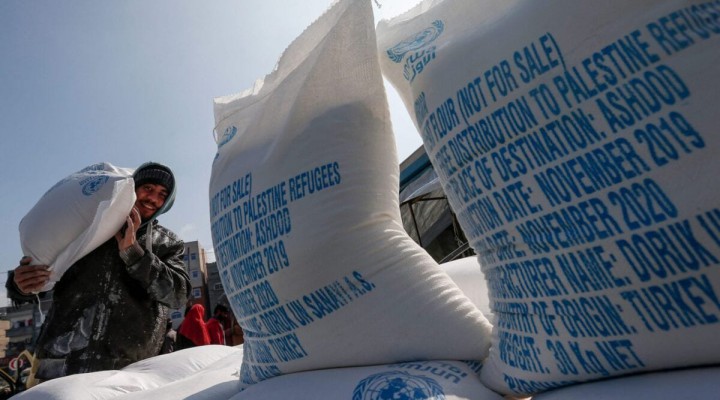Palestinian refugees are being marginalised by the focus on UNRWA

Can we speak of the sustainability of humanitarian aid in the face of ongoing colonial expansion and perpetual dispossession? Commissioner-General Philippe Lazzarini who heads the UN Relief and Works Agency for Palestine Refugees (UNRWA) met recently with PLO executive committee member Ahmad Majdalani to discuss the financial crisis facing the agency and its impact on the provision of services for Palestinian refugees. According to the Palestinian Authority’s official news agency, Wafa, Majdalani said that the PA is “making great efforts to mobilise the necessary funding for UNRWA, in order to enable it to continue providing its basic services to refugees.”
Earlier this month, a similar discussion took place between Lazzarini and Swedish government officials. The talks were summed up by Sweden’s Foreign Affairs Minister Ann Linde: “UNRWA plays a key role in providing humanitarian assistance to Palestine refugees until a political solution has been found for the refugee issue.” UNRWA plays a key role, indeed, but the political solution timeframe is only serving the agency’s existence and not the legitimate expectations and rights of the Palestinian refugees.
Lazzarini described Sweden’s support as predictable and “much appreciated at a time when UNRWA faces a chronic mismatch between available funding and resources needed, contributing to further instability.”
It is likely that funding will remain a problem for UNRWA, mirroring the absence of a solution for Palestinian refugees. However, the latter are no longer perceived as a pressing issue. Instead, the agency’s survival at the expense of Palestinian refugees makes the news, when the focus should be upon the fact that the agency’s beneficiaries are forced to remain tethered to the aid it provides for essential basic needs and their very survival.
UNRWA was supposed to be a temporary arrangement, yet the UN’s own complicity with Israel’s colonial project has turned the agency into a permanent fixture which, despite this sense of permanence (its mandate has to be renewed periodically), depends almost entirely on voluntary donations. The travesty, however, is that UNRWA has eclipsed the importance of focusing on a political solution which should be based on decolonisation. Dancing to the tune of mainly Western donors focused on the two-state compromise only strengthens UNRWA’s role in the political process, despite its claims of neutrality. Financial aid to UNRWA should not only be considered in terms of provision — which is only geared towards ensuring survival — but also political autonomy.
UNRWA’s priority is to ensure that Palestinians remain a pending item on the international diplomatic agenda. Less commitment is evident in moves for the funding of the agency, whereas diplomatic engagement for a solution on the question of Palestinian refugees would ultimately require a dismantling of the policies upon which the two-state paradigm rests. The PA, of course, would also be averse to such a scenario, given that it does not prioritise Palestinian refugees other than in terms of funding for UNRWA. Within the parameters of the two-state compromise, Palestinian refugees constitute symbolic references and there is no commitment to end their predicament, not even by the Palestinian leadership which has, in the past, consented to deprioritise the population whose legitimate right to return to their land in Palestine has been quashed by humanitarian aid. Sustainability may bolster UNRWA rhetoric, but it does not help Palestinians to be part of a hidden narrative when they are the protagonists within their own story as refugees.
https://www.middleeastmonitor.com/20220414-palestinian-refugees-are-being-marginalised-by-the-focus-on-unrwa/
 TheAltWorld
TheAltWorld 
0 thoughts on “Palestinian refugees are being marginalised by the focus on UNRWA”